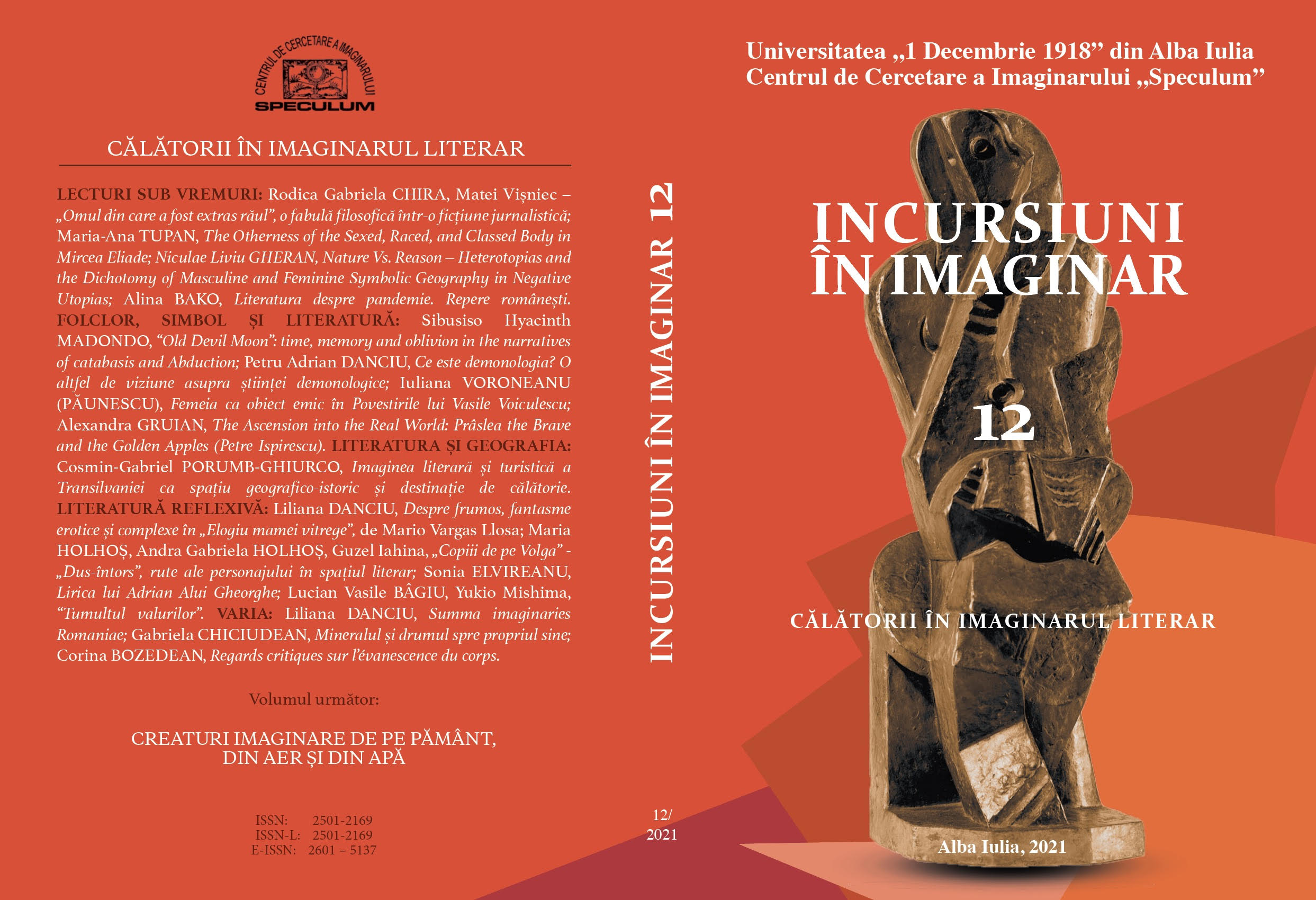Nature Vs. Reason – Heterotopias and the Dichotomy of Masculine and Feminine Symbolic Geography in Negative Utopias
Nature Vs. Reason – Heterotopias and the Dichotomy of Masculine and Feminine Symbolic Geography in Negative Utopias
Author(s): Niculae Liviu GheranSubject(s): Language and Literature Studies, Studies of Literature, Comparative Study of Literature, Philology
Published by: Editura Aeternitas
Keywords: symboli; geography; gender; spatiality; reason; nature; dystopia; negative utopias;
Summary/Abstract: Much has been discussed about the issue of symbolic geography in negative utopias. I aim to prove within this paper that in the case of many authors, we are dealing with a symbolic dichotomy between nature and reason connected with a gendering of space that splits the texts' geography into feminine and masculine areas. On the one hand, we thus have central urban environments that always seem to be associated with reason and ruled by a patriarchal father figure (Big Brother, The World Controller, the Benefactor, etc.) These are spaces gendered as masculine and are subject to the direct critique of the authors. On the other hand, we can also observe in a multitude of negative utopias, too many to ignore from the perspective of a critical analysis of the genre, peripheral geographic spaces associated with nature, and the feminine characters that inhabit/make use of them). These alternative geographic locations can be viewed as heterotopian in a Foucauldian sense, having in mind the philosopher's definition in his essay “Des espaces autres”. The aim of this paper is thus to highlight these peripheral spaces and then comment on the source of this type of spatial construction, which in the case of negative utopias I believe to be 19th Century literary spatiality. The gendering of space often employed by the Romantics, the direct association between nature and a feminine symbolic principle seems to have also influenced the construction of the marginal geographic locations present in negative utopias. These locations seem to allude to a type of symbolic geography gendered as feminine that directly opposes the way the dystopian city is constructed. To achieve my goal, I have made use of theoretical arguments such as those presented in works such as Lowy and Sayre’s “Romanticism Against the Tide of Modernity”, Nicole Pohl and Brenda Tooley’s “Gender and Utopia in the Eighteenth Century” as well as Philip E. Wagner’s “Utopia, the Nation and the Spatial Histories of Modernit”y.
Journal: Incursiuni în imaginar
- Issue Year: 1/2021
- Issue No: 12
- Page Range: 46-62
- Page Count: 17
- Language: English

